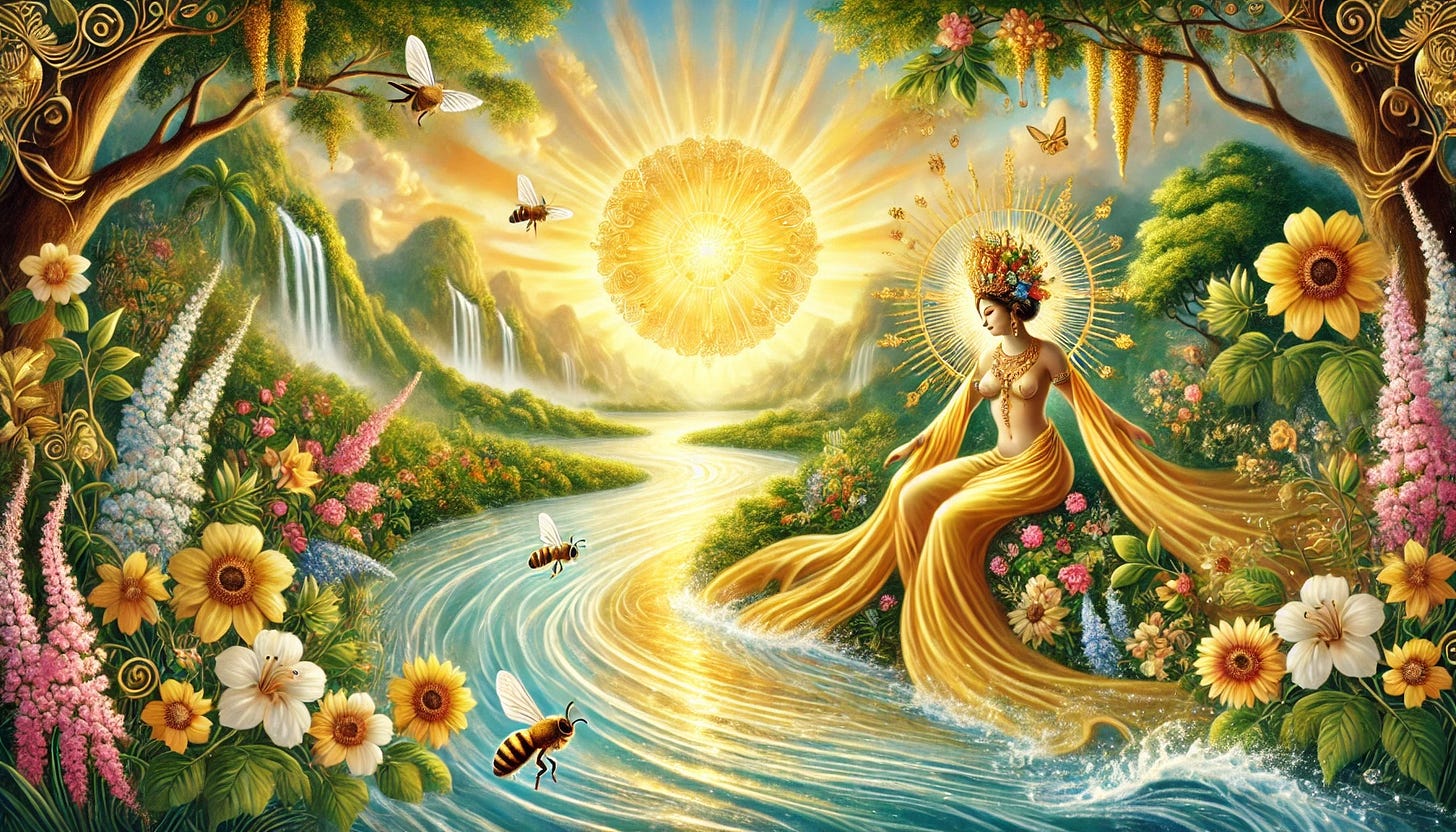The Essence of Beauty in Ifá: More Than Meets the Eye
Understanding the Spiritual Depths and Reflections of Beauty in Ifá
Dear devotees of the sacred traditions,
Máa yàtò ni ayé àti orí mi
(May you stand out in both your life and your destiny).
Today, we explore the concept of beauty as seen through the lens of Ifá, where beauty is not only in appearances but in harmony with your Orí and the balance of the spirit.
Ayé àti àkàrà oúnjé kan náà!
(This world and akara are like the same food!)
In the worldview of Ifá, beauty goes beyond surface appearances, reflecting not only physical traits but the harmony of inner character and spiritual balance. Just like akara, a dish both simple and profound, beauty is layered and complex—what you see may not always tell the full story.
Understanding Beauty in Ifá
In Ifá, beauty is viewed as a reflection of inner virtues, harmony, and alignment with one’s destiny (ìpín). It is not just about physical appearance but the balance of physical, emotional, and spiritual well-being. The Odu Ifá teaches us that true beauty comes from an inner light, a connection to one’s destiny, and the Orí (inner head) being at peace.
A common proverb from Odu Ifá says:
Ògún nií sáré; àbàrà nií sáré, a kì í pe eyin oosa lẹ.
(Beauty is fleeting, like the transient forces of the wind and rain; do not rely solely on appearances.)
This speaks to the dangers of being fixated on outward beauty and ignoring the spiritual and moral foundations that sustain a person through life.
Odus Linked to Beauty
Several Odus in Ifá speak to the concept of beauty, its potential, and the risks involved:
Odu Ogbe Yonu is perhaps one of the most striking in its focus on beauty. It teaches that physical beauty must be accompanied by intelligence, patience, and a sense of purpose. Without these, beauty can lead to arrogance or vanity, which, unchecked, results in spiritual downfall.
Odu Irosun Meji warns that physical beauty is often admired but also envied, which can lead to unforeseen consequences like jealousy or betrayal. It highlights the need for humility and inner strength, lest beauty become a source of misfortune.
Odu Otura Meji touches on the idea that beauty is not only for oneself but to be shared with the community. It suggests that an individual’s beauty is enhanced when they use it to uplift others—through kindness, generosity, or wisdom.
Orishás and Beauty
Several Orishás are closely tied to the concept of beauty in Ifá:
Oshún is the Orishá most traditionally linked to beauty, femininity, and sensuality. Yet, Oshún’s beauty is far more than her physical appearance—it is her charisma, her charm, and her ability to attract and influence others through her inner grace. Oshún teaches us the value of emotional depth, reminding us that the most beautiful person is one who is spiritually aligned, compassionate, and in tune with the energies of love and harmony.
Obatalá, though known for his wisdom and creation of humankind, also embodies the beauty of peace, purity, and gentleness. He teaches that true beauty comes from serenity and self-restraint. Obatalá shows us that beauty, when it reflects inner calm and wisdom, becomes a source of strength.
Potential and Risks of Beauty: Beauty, when harnessed correctly, has immense potential to inspire and heal. A beautiful person can attract blessings, love, and opportunities. However, Ifá cautions that beauty, if misused, can lead to vanity, selfishness, and destructive competition.
In Odu Ogunda Meji, Ifá advises that physical beauty alone is fleeting and can become a source of conflict. It speaks of the dangers of valuing beauty over good character (ìwà), urging followers to focus on actions that build lasting relationships and spiritual harmony. Ifá warns that those who rely on beauty for success may face challenges when it fades.
Recommendations from Ifá:
Cultivate Inner Beauty: Work on aligning with your Orí and maintain good character (ìwà rere). True beauty is a reflection of spiritual peace and good deeds.
Be Humble: Avoid arrogance or placing too much emphasis on external appearances. Like Odu Ogbe Yonu teaches, balance beauty with humility and purpose.
Use Beauty to Uplift Others: Following the wisdom of Odu Otura Meji, use your attractiveness to benefit the community—share your joy, wisdom, and compassion.
Beware of Envy: Odu Irosun Meji reminds us that beauty can sometimes attract envy. Protect your blessings by remaining humble and spiritually grounded.
Conclusion
Kí o má ṣe dúró ládùúgbò lójúkan; igbó máa sọ àìsàn ni o ni.
(May you not tarry in one place too long; the stagnant forest brings illness.)
This proverb reminds us that beauty is ever-changing and evolving, much like life itself. As we grow in spirit and character, we cultivate beauty that lasts far beyond the physical.
May you find beauty in wisdom, harmony, and the pursuit of your destiny, always remembering that true beauty lies within.
Stay blessed in all that you reflect,
Kí Ọlọ́run máa mú ọ láyò, kí o sì wá inú rere àti aláfíà.
(May the divine continue to bring you joy, favor, and peace.)
Let your beauty shine from within, always connected to your highest path.
Babá Tilo de Àjàgùnnà
DAILY IFÁ
“If a person’s head leads them well, they will find all good things in life,” says Odu Ifá Otura Ogbe. As we move into the week, we are reminded of the importance of humility, vigilance, and the sacrifices necessary to avoid disaster and bring success. Learn how Otura Ogbe’s wisdom can guide your health, business, and relationships. Practical rituals and spiritual insights will help you align with its teachings. Insights will follow in a separate newsletter to all supporting family members of DAILY IFÁ.





